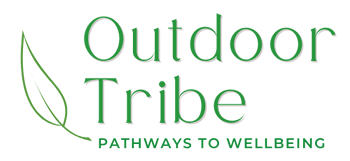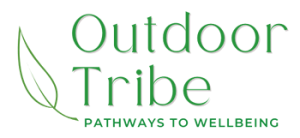Forest School at our place
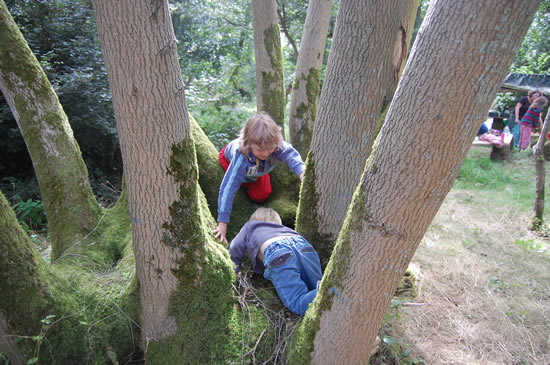
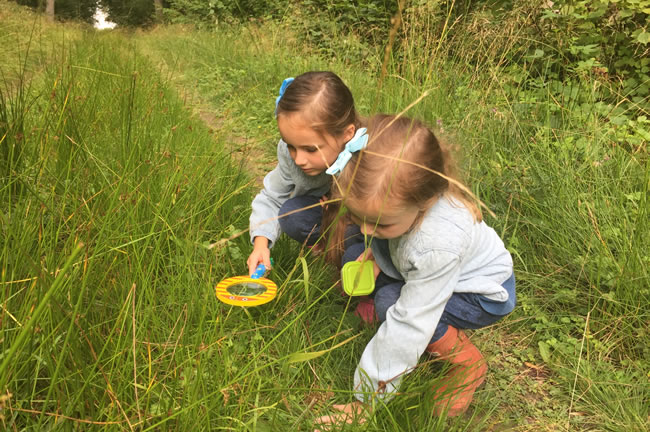
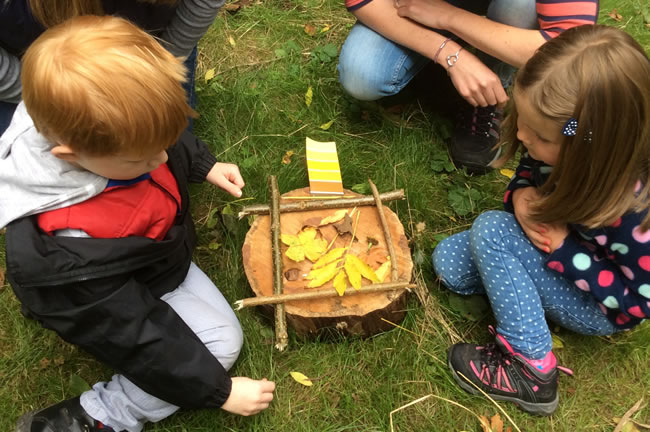
What is Forest School?
- At Forest School the sessions are designed to provide children with opportunities for freedom, experiencing the joys of imaginative play-based experiences in a truly wild wood setting.
- Forest School is a process, not just about developing physical and social skills, but supporting each child’s needs in ways that it is hoped will help them in life beyond Forest School.
- Forest School shouldn’t just about den building and making camp fires, rather more about helping children to relax, have fun, connect with the natural world, enjoy being part of a group, overcome fears and anxieties.
- Forest School provides children with a secure and supportive framework in an outdoor environment in which they can find their own starting points, having fun and extending skills without even knowing they are doing so.
- At Forest School the adult role is to support, encourage, stand back and observe without interference, unless a child is putting themselves or others at risk.
- The Forest School Leader introduces activities to promote holistic development of individual children and to encourage them to learn about and connect with the natural world.
- Children need to attend for a minimum of 6 sessions for to experience holistic developmental benefits.
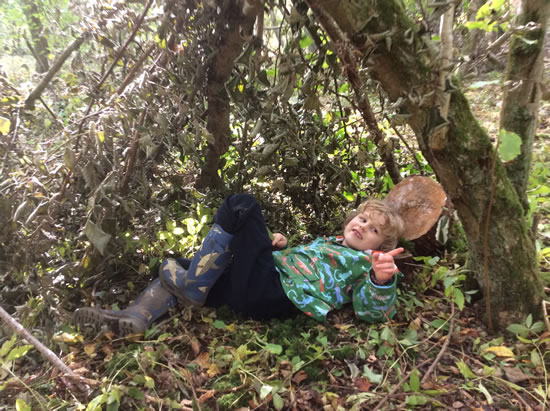
Forest School sessions feedback
“Thanks for the sessions – I thought they were amazing! If only they had this type of thing when I was a kid”
“My boys loved making new friends in an environment where they felt safe and valued. Both grew in confidence; the experience allowing them to to communicate with new people and express their opinions knowing they would be heard”
Cost of Forest School sessions
One-off Forest School Sessions
- Minimum age 3 years
- The price charged covers costs associated with rental charge for use of the woodland, staff related expenses to run the activities and all materials used by those taking part
- The sessions will be led by Susan Collini, a Level 3 Forest School Leader who has worked as both a mainstream and special needs teacher. Susan has necessary First Aid and DBS certificates. Outdoor Tribe CIC is fully insured for delivery of Forest School sessions.
- During the Covid Pandemic we will run with two or three families only and children need to be accompanied by one adult.
- Forest School sessions last 2 hours
Block of 6 Forest School sessions
- Minimum age 3 years
- The price charged covers costs associated with rental charge for use of the woodland, staff related expenses to run the activities and all materials used by those taking part.
- The sessions will be led by Susan Collini, a Level 3 Forest School Leader who has worked as both a mainstream and special needs teacher. Susan has necessary First Aid and DBS certificates. Outdoor Tribe CIC is fully insured for delivery of Forest School sessions.
- During the Covid Pandemic we will run with two or three families only and children need to be accompanied by one adult.
- Forest School sessions last 2 hours
More about Forest School
Forest School is… “an inspirational process that offers children… opportunities to achieve, develop confidence and self esteem through hands-on learning experiences in a woodland environment.”
Forest School (England) Network
Forest School is about the ‘whole’ child. Activities are designed to develop physical, emotional and social skills. Each session is evaluated, in respect of each child, to ensure that what’s done next session furthers the progress of individuals. Forest School is about facilitating individualised learning, rather than about group-led learning experiences. Forest School delivery is flexible, in response to the needs of the particular children involved, which is what helps each and every child not just benefit from the experience, but shine! Open the tabs below to read more…
Is it like school but outside?
Yes and No! Forest School is not about listening to a teacher telling you what you must do, but there are still some rules to be followed to keep everyone safe. Forest School happens outside and involves a lot of play-based activities with ‘risk’ levels managed according to individual needs.
What happens at Forest School?
Everyone learns skills to help them stay safe, individually and as part of a group, so all can experience a relaxed and fun time, enjoying the delights of playing in a wild outdoors space. Activities are introduced to the group and individuals on a ‘readiness’* basis and can include:
- Exploration games
- Working with saws
- Using woodland management tools
- Learning about the plants and animals that live in a woodland
- Making things with wood, from the wood!
- Den building
- Experiences to encourage imagination and creativity
- Story-telling
- Camp-fire building
- Cooking over an open fire
* Readiness – this means that the Forest School leader will assess individuals as to whether they possess understanding, relating to the risk involved in a particular activity, through demonstrating behaviour for staying safe, in relation to themselves and others. Accidents can happen, but we try to minimise the risk to individuals through risk-management of activities and situations and building risk-awareness. Risk-management is a skill individuals learn at Forest School, with the aim of influencing their approach and appraisal of other risky situations in the wider world.
What are the benefits of Forest School?
Considerable research shows that Forest School helps children
- Gain self-confidence
- Encourage independance
- Improve social skills
- Increase attention span
- Develop problem solving skills
- Encourage creative thinking
“A marvellous opportunity to learn” Forestry Commission report – Liz O’Brien and Richard Murray
Who runs the Forest School sessions?
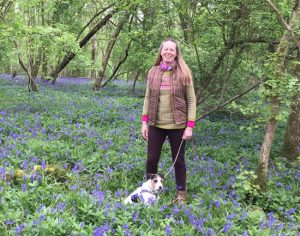 Susan Collini is a qualified Forest School Level 3 Leader and worked for many years as a teacher, working within mainstream and special needs educational provisions.
Susan Collini is a qualified Forest School Level 3 Leader and worked for many years as a teacher, working within mainstream and special needs educational provisions.
Susan is also a Level 3 practitioner in Social Forestry, a qualification for working with adults and children to benefit their wellbeing through nature connection and nature immersion.

Parental feedback
My son was always excited about Forest School, saying ‘it’s my perfect favourite thing’. He is extrememly quiet and doesn’t give much away but is obviously enjoying himself.
Ruth MacAuley
Parental Feedback
“The boys particularly enjoyed the den building and making the fire. My eldest son benefited from the sessions as he was able to explore his passion for wildlife. My youngest definitely gained confidence during the 6 weeks and it certainly helped develop his communication and social skills”
Naomi Cebula
Parental feedback
“Forest school has been a wonderful experience for my daughter, she has taken so much from her sessions – making new friends, observing the seasons, fun activities, being mindful and respectful of nature, listening and following instructions, being free in a safe place – I cant say enough about the benefits of the project” Katie Paton
Parental feedback
“Both boys really enjoyed Forest School and looked forward to it each week.
“As the six-week block of sessions progressed, both boys developed confidence and their communication skills improved at home, as too their independence”
Cara Kemsley
